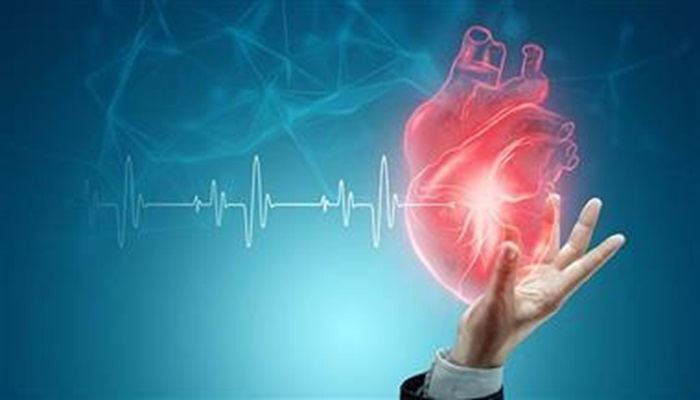Arrhythmias are irregular heartbeats that can lead to various health complications, including fainting, palpitations, and in severe cases, sudden cardiac death. Understanding whether arrhythmias are hereditary is crucial for individuals with a family history of heart conditions. This article explores the genetic basis of arrhythmias, the types of inherited arrhythmias, their inheritance patterns, and the implications for diagnosis and treatment.
What Is Arrhythmias?
Arrhythmias occur when the electrical impulses that coordinate the heart’s beats malfunction, causing the heart to beat too quickly, too slowly, or irregularly. While many factors can contribute to arrhythmias, including lifestyle choices and underlying health conditions, genetics plays a significant role in certain types of arrhythmias.
Types of Inherited Arrhythmias
Several inherited arrhythmia syndromes have been identified, each associated with specific genetic mutations. The most common types include:
Long QT Syndrome (LQTS): A condition that affects the heart’s electrical system, leading to prolonged QT intervals on an electrocardiogram (ECG). It can result in fainting spells and sudden cardiac arrest.
Brugada Syndrome: Characterized by a specific pattern on the ECG and an increased risk of sudden cardiac death, especially in young males.
Catecholaminergic Polymorphic Ventricular Tachycardia (CPVT):
Triggered by physical activity or emotional stress, this condition leads to rapid heartbeats.
Short QT Syndrome (SQTS): A rare condition that can lead to arrhythmias and sudden cardiac death.
Arrhythmogenic Right Ventricular Dysplasia (ARVD): A genetic disorder that affects the heart muscle, leading to arrhythmias and heart failure.
SEE ALSO: Afib Vs Svt: What’s The Difference
Genetic Basis of Arrhythmias
Research has identified several genes associated with inherited arrhythmias. These genes primarily encode ion channels, which are proteins that facilitate the flow of ions across cell membranes, crucial for generating electrical impulses in the heart. Key genes implicated in inherited arrhythmias include:
KCNQ1, KCNH2, and SCN5A: Associated with Long QT Syndrome and Brugada Syndrome.
RYR2: Linked to CPVT.
PKP2, DSP, and DSG2: Associated with ARVD.
Mutations in these genes can disrupt normal cardiac function, leading to arrhythmias. Genetic testing can help identify these mutations, enabling early diagnosis and management.
Inheritance Patterns
Inherited arrhythmias typically follow two main inheritance patterns:
autosomal dominant and autosomal recessive.
Autosomal Dominant Inheritance: In this pattern, only one copy of the mutated gene from an affected parent is sufficient to cause the disorder. Each child of an affected parent has a 50% chance of inheriting the condition. Most inherited arrhythmias, such as LQTS and Brugada syndrome, follow this pattern.
Autosomal Recessive Inheritance: In this case, an individual must inherit two copies of the mutated gene—one from each parent—to manifest the condition. This pattern is less common in arrhythmias but can occur in certain syndromes.
Risk Factors And Symptoms
While genetics plays a crucial role in inherited arrhythmias, other factors can influence an individual’s risk. Family history is a significant risk factor; individuals with relatives who have experienced sudden cardiac death or diagnosed arrhythmia syndromes should be evaluated for potential genetic conditions.
Symptoms of inherited arrhythmias can vary widely and may include:
Palpitations or irregular heartbeats
Dizziness or lightheadedness
Fainting or near-fainting episodes
Chest pain
Sudden cardiac arrest
Some individuals may be asymptomatic, with conditions discovered incidentally during routine examinations or ECGs.
Diagnosis of Inherited Arrhythmias
Diagnosing inherited arrhythmias involves a comprehensive approach:
Family History: A detailed family history can provide insights into potential hereditary patterns.
Electrocardiogram (ECG): An ECG records the heart’s electrical activity and can reveal abnormalities indicative of arrhythmias.
Genetic Testing: If a hereditary arrhythmia is suspected, genetic testing can confirm the presence of mutations associated with specific syndromes.
Holter Monitor: This portable ECG device records the heart’s activity over 24-48 hours, capturing intermittent arrhythmias.
Exercise Testing: For conditions like CPVT, exercise testing can provoke arrhythmias that may not be evident at rest.
Management And Treatment
Management of inherited arrhythmias focuses on reducing the risk of complications, including sudden cardiac death.
Treatment options vary based on the specific condition and may include:
Lifestyle Modifications: Patients are often advised to avoid triggers such as excessive exercise, stress, and certain medications that can exacerbate arrhythmias.
Medications: Beta-blockers are commonly prescribed for conditions like LQTS and CPVT to help stabilize heart rhythms.
Implantable Cardioverter-Defibrillator (ICD): For high-risk patients, an ICD may be implanted to monitor heart rhythms and deliver shocks if life-threatening arrhythmias occur.
Surgical Interventions: In some cases, procedures such as catheter ablation may be recommended to correct arrhythmias.
Conclusion
Arrhythmias can indeed be hereditary, with several genetic syndromes identified that significantly increase the risk of life-threatening heart rhythms. Understanding the genetic basis of these conditions is crucial for early diagnosis, management, and prevention of complications. Individuals with a family history of arrhythmias should seek medical advice to assess their risk and explore appropriate testing and management options.

